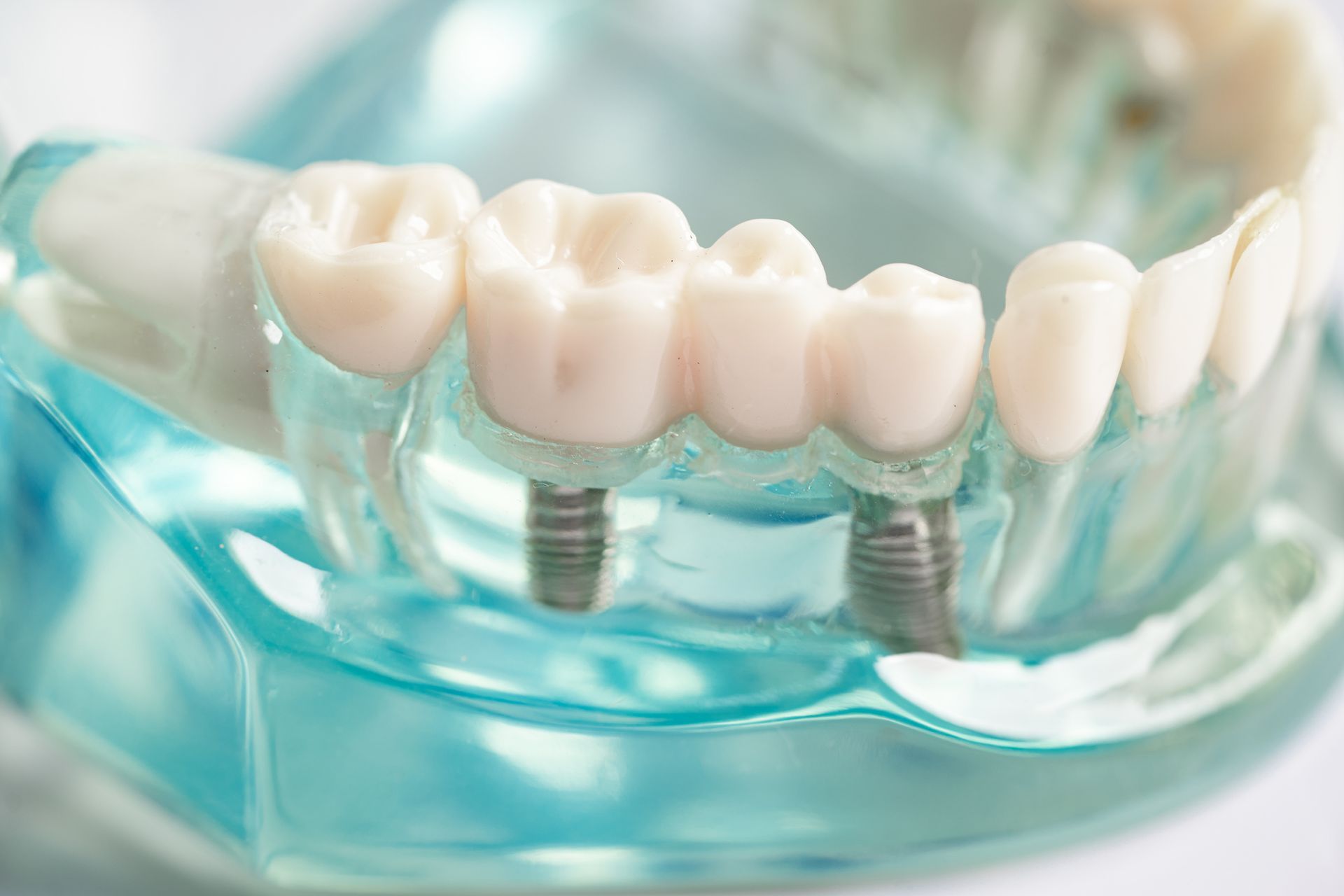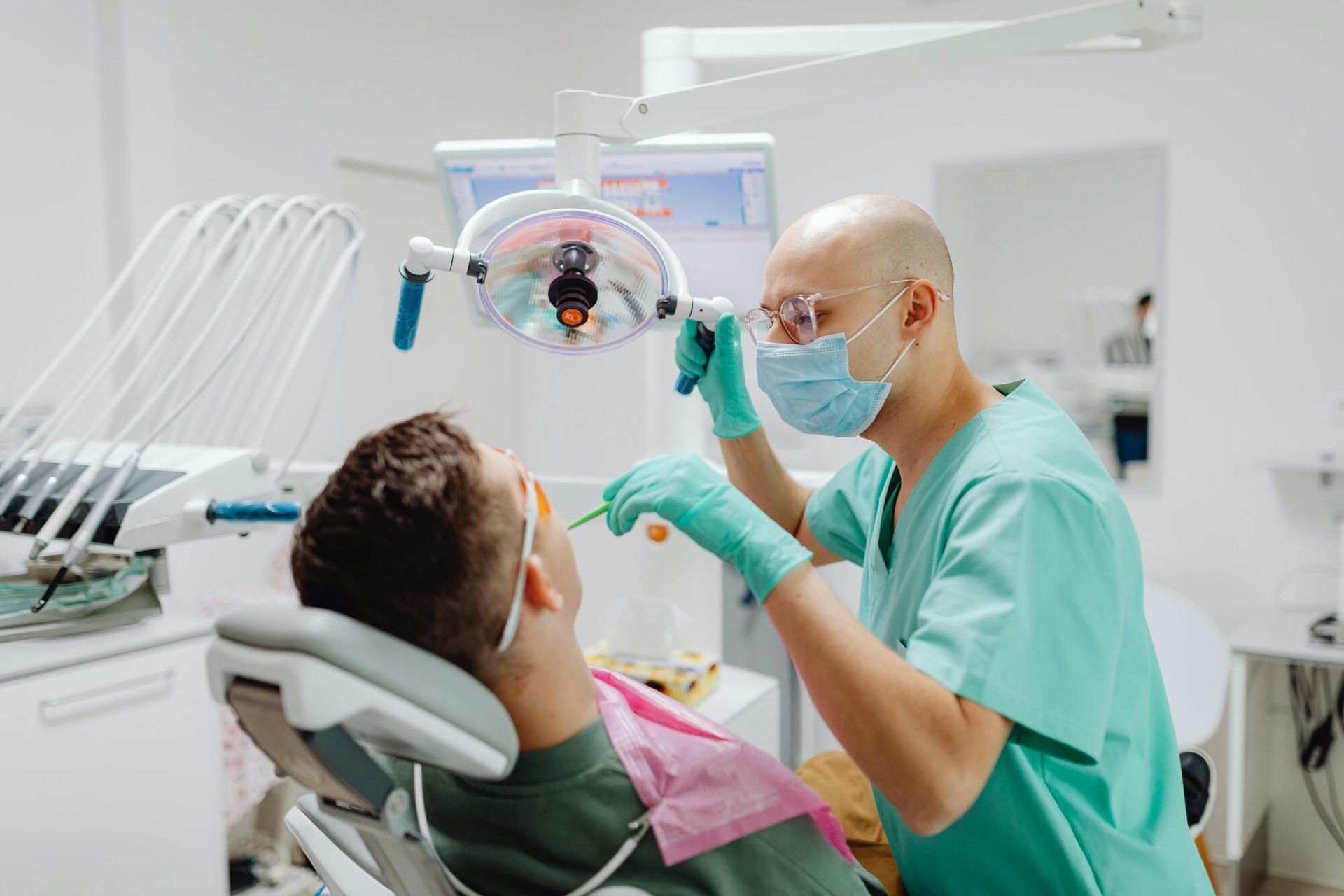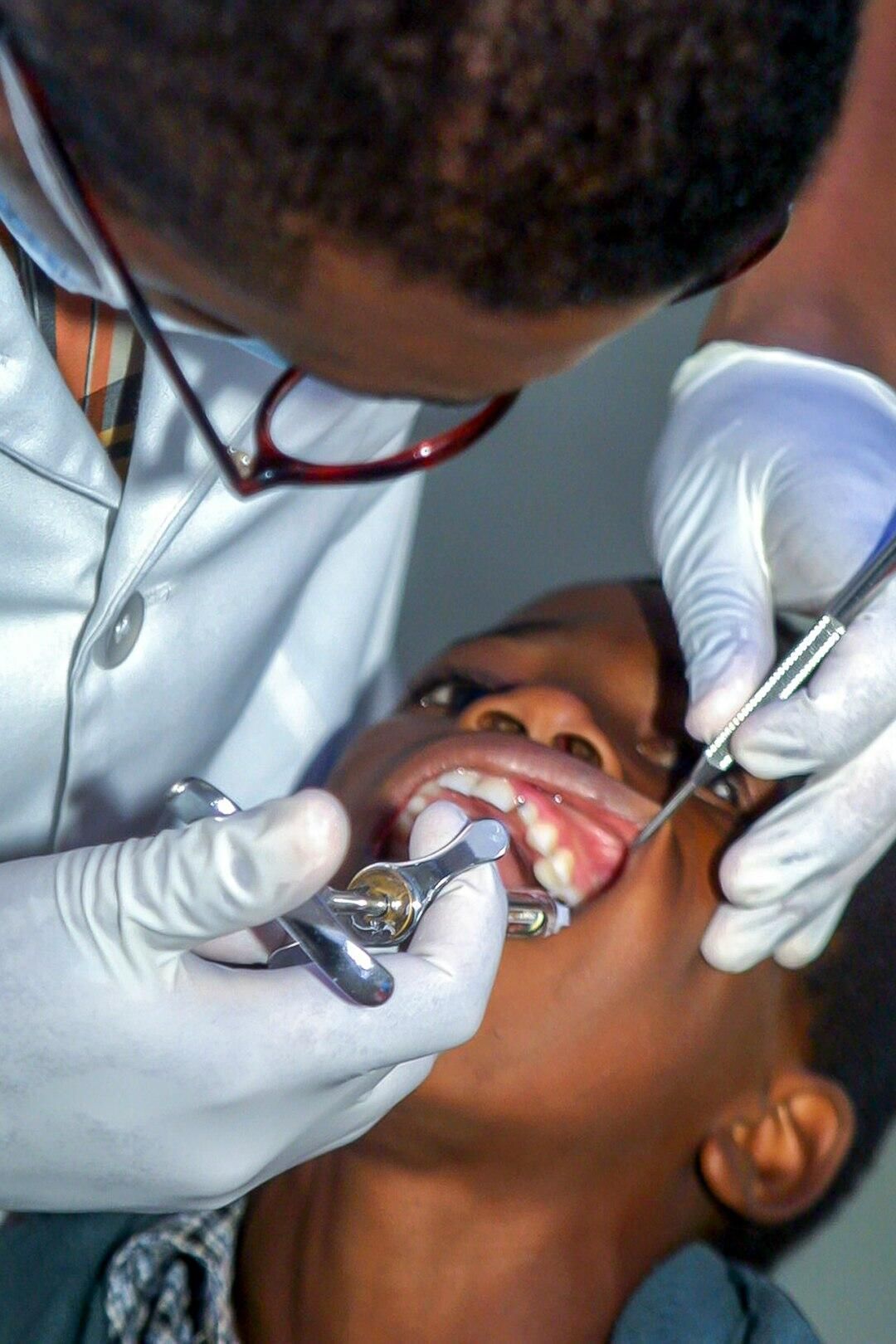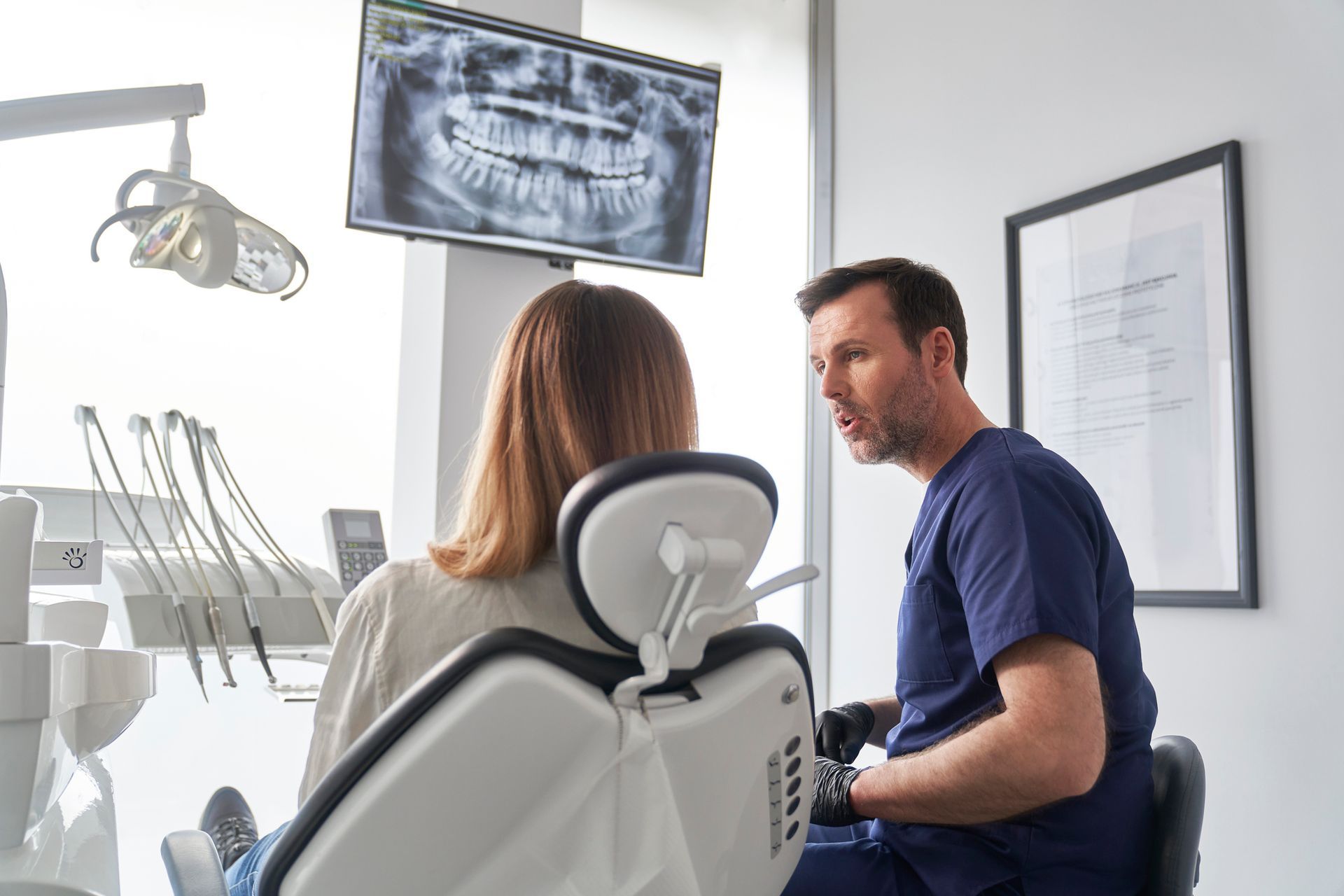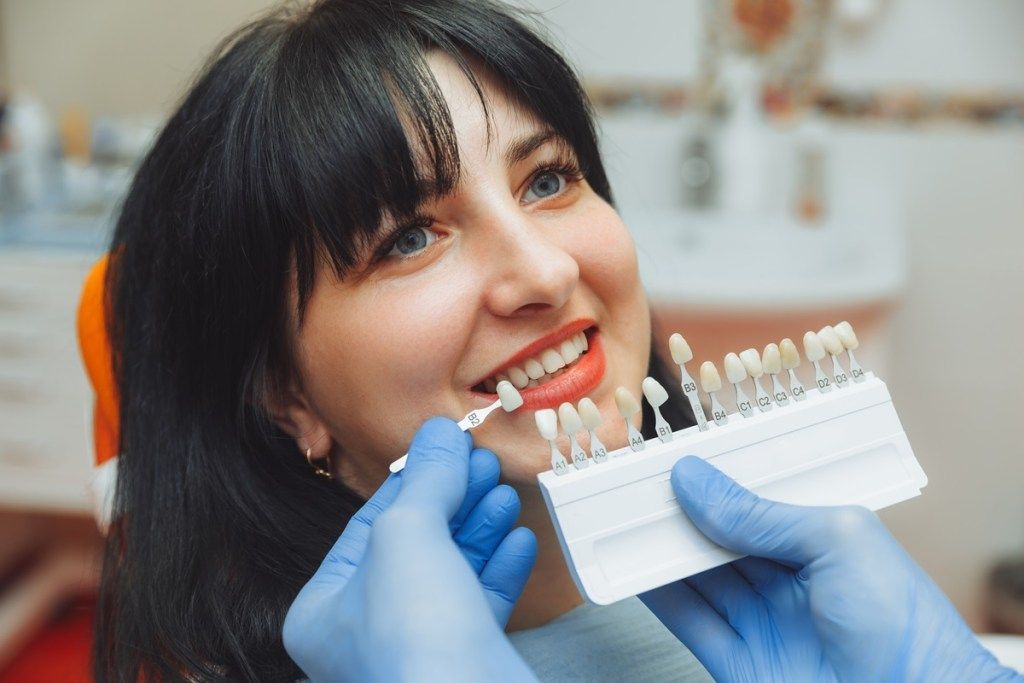How Dentists Can Treat TMD Without Surgery
Temporomandibular joint disorder (TMD) affects the joints that connect your jaw to your skull, often leading to pain, discomfort, and difficulty with everyday activities like chewing and speaking. If you’ve been diagnosed with TMD, you might worry that surgery is the only solution. However, there are plenty of non-surgical treatment options that can help manage your symptoms and get you back to feeling normal. In this post, you’ll learn about the various non-invasive treatments available to alleviate TMD and improve your quality of life.
What Causes TMD?
Understanding what triggers TMD can help you and your dentist determine the best treatment plan for you. TMD can be caused by a variety of factors, including:
Injury to the jaw: A physical blow or trauma to the jaw can lead to TMD.
Teeth grinding (bruxism): Grinding or clenching your teeth puts pressure on your jaw joint, which can worsen over time.
Arthritis: Conditions like osteoarthritis or rheumatoid arthritis can cause inflammation and pain in your jaw joints.
Misaligned bite: If your teeth or jaw don’t line up properly, this can strain your temporomandibular joints (TMJs).
Stress: Stress often causes clenching of the jaw or tightening of facial muscles, which can contribute to TMD.
Identifying the root cause of your TMD is key to choosing the right treatment and avoiding surgery.
Non-Surgical Treatment Options for TMD
You might be surprised by the wide range of non-surgical options for addressing TMD. While some involve oral appliances, others rely on a collaboration between dentist and patient, giving you greater control over your health and wellness. Here are some of the solutions your dentist may present:
1. Mouthguards and Splints
One of the simplest and most effective treatments for TMD is a custom-made mouthguard or splint. These devices prevent you from grinding or clenching your teeth, especially while you sleep. Over time, this will help relieve pressure on your jaw and reduce pain. Your dentist can design a splint that fits comfortably in your mouth, and you’ll wear it at night.
2. Physical Therapy and Exercises
Physical therapy can do wonders for managing TMD. By following a set of jaw exercises designed by your dentist or physical therapist, you can strengthen and stretch the muscles around your jaw joint. This will improve your joint’s function and reduce tension.
Therapists may also perform manual techniques like jaw massage to ease pain and stiffness. Committing to these exercises daily can make a big difference in how you feel.
3. Lifestyle Changes and Stress Management
Certain lifestyle habits can worsen TMD, so modifying them can help relieve your symptoms. For example, chewing gum or hard foods can put unnecessary stress on your jaw. Reducing these habits, along with avoiding chewing on objects like pens or nails, can give your jaw a break.
Stress is another significant factor in TMD. High stress levels often lead to jaw clenching or teeth grinding. Incorporating stress-relieving techniques such as deep breathing exercises, yoga, or meditation into your routine can help you manage tension in your jaw muscles. Learning to relax your facial muscles during the day can prevent the condition from worsening.
4. Medications
Over-the-counter pain medications like ibuprofen or acetaminophen can offer temporary relief for mild TMD pain. If your symptoms are more severe, your dentist might recommend anti-inflammatory medications or muscle relaxants. These can reduce inflammation and muscle spasms around your jaw. However, it’s important to remember that medication should be part of a larger treatment plan, rather than a long-term solution on its own.
5. BOTOX® Injections
BOTOX isn’t just for cosmetic purposes; it’s also an effective option for treating TMD. BOTOX injections can temporarily weaken the muscles that cause you to clench or grind your teeth. This reduces the pressure on your TMJ and offers relief from pain. BOTOX treatments typically last a few months, after which you can get repeat injections if necessary.
Self-Care for TMD
In addition to the treatments your dentist provides, you can take steps at home to manage your TMD symptoms. Here are a few self-care practices that can make a big difference:
Hot or cold packs: Applying ice or heat to your jaw can help reduce inflammation and soothe discomfort.
Soft diet: Eating softer foods, especially during flare-ups, will reduce strain on your jaw.
Jaw relaxation: Practice jaw relaxation techniques and avoid keeping your teeth clenched together when not chewing.
Healthy sleep habits: Make sure you’re getting enough rest and consider sleeping on your back to avoid putting pressure on your jaw.
By incorporating these habits into your daily routine, you’ll help relieve your TMD symptoms and prevent them from worsening.
Surgery Isn’t the Only Solution
While TMD can cause a lot of discomfort, surgery isn’t your only option. Dentists offer a wide range of non-surgical treatments that can effectively manage your symptoms and improve your quality of life. Whether it’s through mouthguards, physical therapy, lifestyle changes, or even BOTOX injections, you have choices that can lead to lasting relief.
Speak with your dentist about your symptoms, and together, you can create a plan that works for you without the need for surgery. By taking an active role in your treatment and incorporating self-care techniques, you can regain control and find relief from TMD.
The post How Dentists Can Treat TMD Without Surgery first appeared on Dental Signal.
